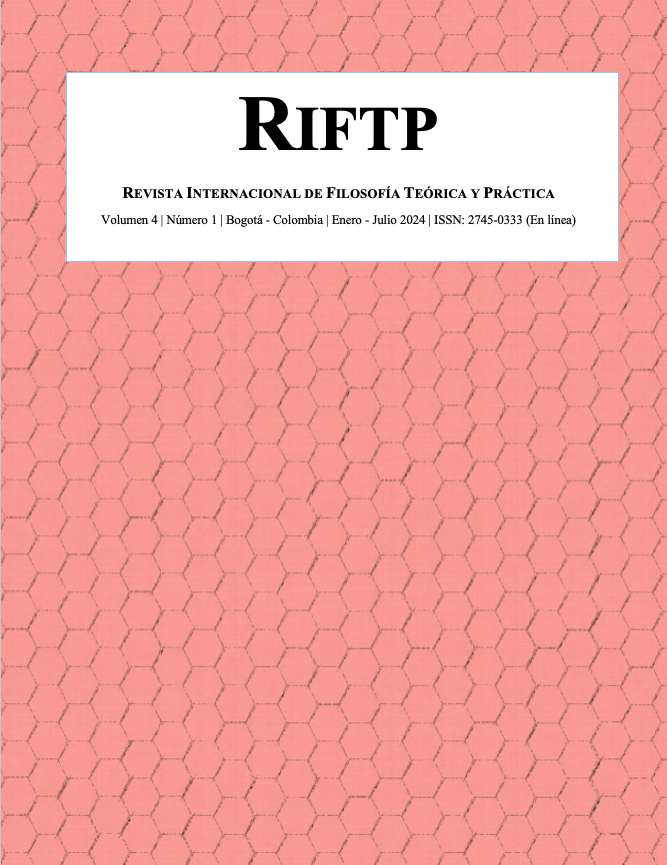Consideraciones éticas para el uso académico de sistemas de Inteligencia Artificial
DOI:
https://doi.org/10.51660/riftp.v4i1.95Keywords:
inteligencia Artificial, ética, academia, educación, investigaciónAbstract
Este artículo explora las consideraciones éticas que rodean el uso de la Inteligencia Artificial
(IA) en la academia. Se establecen principios éticos generales para la IA en este ámbito, como
la transparencia, la equidad, la responsabilidad, la privacidad y la integridad académica. En
cuanto a la educación asistida por IA, se enfatiza la importancia de la accesibilidad, la no
discriminación y la evaluación crítica de los resultados. Se recomienda que la IA se use para
complementar y no para reemplazar la enseñanza tradicional. En cuanto al ámbito de la
investigación, se hace énfasis en la necesidad de garantizar la calidad y la veracidad de los
datos utilizados, así como la transparencia en los métodos y resultados. Se deben considerar
los posibles sesgos y riesgos de la IA en la investigación. El artículo concluye que la adopción
responsable de la IA en la academia requiere una reflexión crítica sobre sus implicaciones
éticas. Se recomienda la creación de marcos éticos específicos para cada contexto y la
participación de diversos actores en la toma de decisiones
Downloads
References
Allen, C. (2017). Artificial intelligence and autonomy. Philosophy & Technology, 30(2), 167-182.
Aparicio-Gómez, Oscar-Yecid, Aparicio-Gómez, William-Oswaldo (2024). Homo technicus: From techné to Artificial Intelligence. von Feigenblatt, Otto., Aparicio-Gómez, Oscar-Yecid (Eds.) (2024). Artificial Intelligence and Education: An Ongoing Dialogue. Barcelona: Octaedro.
Aparicio-Gómez, Oscar-Yecid, Aparicio-Gómez, William-Oswaldo (2021). Referentes filosóficos del proceso educativo. Revista Internacional de Filosofía Teórica y Práctica, Vol. 1, Núm. 1, 157 - 168. https://doi.org/10.51660/riftp.v1i2.37
Bostrom, N. (2014). Superintelligence: Paths, dangers, strategies. Oxford University Press.
Diakopoulos, N. (2016). Accountability in algorithmic decision making. Communications of the ACM, 59(2), 56-62.
Floridi, L. (2016). The Ethics of Information. Oxford University Press.
Floridi, L. (2019). The logic of information: A theory of philosophy as conceptual design. Oxford University Press.
Introna, L. D. (2016). Algorithms, governance, and governmentality: On governing academic writing. Science, Technology, & Human Values, 41(1), 17-49.
Johnson, D. G., & Powers, T. M. (2018). Computer systems: Ethical and social issues. In Information Technology in Action (pp. 345-371). Cengage Learning.
Jonas, H. (1984). The imperative of responsibility: In search of an ethics for the technological age. The University of Chicago Press.
Kant, I. (1785). Fundamentación de la metafísica de las costumbres (A. Giménez Plasencia, Trad.). Alianza Editorial.
Levinas, E. (1969). Totality and infinity: An essay on exteriority. Duquesne University Press.
Mill, J. S. (1863). Utilitarianism. Oxford University Press.
Mittelstadt, B. D., & Floridi, L. (2016). The ethics of big data: Current and foreseeable issues in biomedical contexts. Science and Engineering Ethics, 22(2), 303-341.
Moor, J. H. (2006). The nature, importance, and difficulty of machine ethics. IEEE Intelligent Systems, 21(4), 18-21.
Nissenbaum, H. (2009). Privacy in context: Technology, policy, and the integrity of social life. Stanford University Press.
Nussbaum, M. C. (2000). Upheavals of thought: The intelligence of emotions. Cambridge University Press.
O’Neil, C. (2017). Weapons of math destruction: How big data increases inequality and threatens democracy. Crown.
Rawls, J. (1971). A theory of justice. Harvard University Press.
Selbst, A. D., & Barocas, S. (2018). Disparate impact of machine learning algorithms. California Law Review, 106(4), 1033-1074.
Selinger, E., & Engström, T. (Eds.). (2017). Theorizing digital divides. In The Routledge Handbook of Social Media Research (pp. 32-46). Routledge.
Selwyn, N. (2017). Education and technology: Key issues and debates. In Sage Handbook of Technology in Education (pp. 3-19). Sage Publications Ltd.
Solove, D. J. (2008). Understanding privacy. Harvard University Press.
Swanton, C. (2003). Virtue ethics: A pluralistic view. Oxford University Press.
Taddeo, M. (2019). The ethics of cybersecurity. In Stanford Encyclopedia of Philosophy. Stanford University.
Tavani, H. T. (2007). Philosophical theories of privacy: Implications for an adequate online privacy policy. Metaphilosophy, 38(1), 1-22.
Venegas, D., Aparicio-Gómez, Oscar-Yecid, Aparicio-Gómez, William-Oswaldo (2016). Proyecto Ágora: Un espacio virtual para afianzar el aprendizaje escolar y brindar herramientas para la construcción de nuevos conocimientos. En Aparicio-Gómez, Oscar-Yecid (Ed.), El Uso Educativo de las TIC (pp. 115-124). Bogotá, Colombia: Universidad Central. ISBN: 978-958-26-0316-8
Downloads
Published
Issue
Section
License
Copyright (c) 2024 Revista Internacional de Filosofía Teórica y Práctica

This work is licensed under a Creative Commons Attribution-NonCommercial-ShareAlike 4.0 International License.
Articles are published under the terms of a licence that permits use, distribution and reproduction in any medium, provided that the original work is properly cited. Ed&TIC retains the proprietary rights to the published works and actively promotes the reuse of these works under the terms of the aforementioned licence, which encourages the dissemination of knowledge and collaboration in the academic community.


